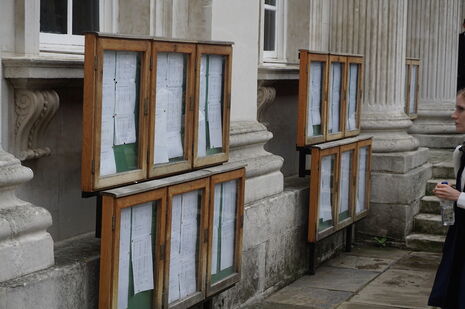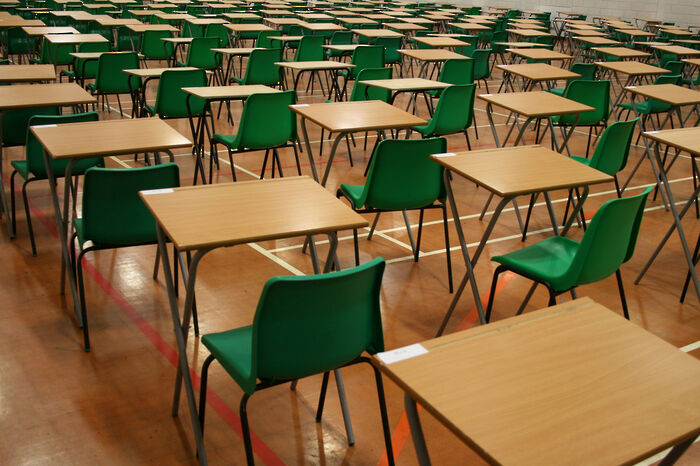A Cambridge education is not the ‘great equaliser’
Following his requests from the University under the Freedom of Information Act, Alasdair de Costa argues that attainment gaps do not disappear upon obtaining a place at Cambridge

There is a presumption that admission to the University of Cambridge is some kind of social leveller. Going to an inner-city comprehensive school will make getting in harder, but once this disadvantage is overcome, you are taught in the same way as everyone else, by the same people as everyone else, in the same academic environment as everyone else. This narrative obscures the reality of many people’s experience.
I recently requested the statistical breakdown of the achievement of differing classes of degree from the University under the Freedom of Information Act. The results clearly indicate that state-educated students remain systemically disadvantaged. Over the past three years, 24% of tripos marks awarded to state-educated students were firsts; for the same period 29% of marks awarded to the privately-educated were firsts. Former grammar school students were marginally (around 1%) more likely to get a first than those who went to other types of state school. Students educated privately were also far less likely to be awarded lower grades and were approximately half as likely to be awarded a third as state-educated students between 2015 and 2017. Clearly, educational background is a significant determinant of performance in the Cambridge tripos system.
“Degree classification is a form of capital which can be used for economic and social advancement”
What I find even more concerning is that this gulf in tripos marks between state- and privately-educated students is growing. In 2012, a Cambridge student from a state school was actually slightly more likely to be awarded a first than one from a private school. Since 2012, however, the attainment gap has expanded year-on-year, with those educated in state schools faring worse. Between 2013 and 2017 the gap more than doubled: from 2.2% to 5.3%.
Ethnicity and gender also intersect with educational background in ways which further inhibit the academic prospects of traditionally marginalised groups at Cambridge. The disparity in grades between men and women is so significant that gender is a more influential factor in determining the probability of an individual being awarded a first than whether your education was paid for or not. State-educated men are consistently awarded more firsts than privately-educated women. However, over the past five years, the latter demographic has been one-and-half times more likely to be awarded a 2:ii and twice as likely to be awarded a third than the former.
Perhaps the most significant attainment gap is that between the number of first class results awarded to privately-educated men and state-educated women. The difference in the proportion of firsts achieved has increased from 8.7% in 2013 to 12.6% in 2017; a man educated in an independent school was one-and-a-half times more likely to be awarded a first than a state-educated woman. The University did not provide statistics for non-binary students.
BME students are also disadvantaged when it comes to being awarded the top grades. In 2017, around one in five 2:ii grades and one in six thirds were awarded to someone who self-identified as BME and went to a state school. The same demographic was awarded just one in ten results at 2:i or better.
Cambridge students from top performing state and private schools have been encouraged to achieve the very highest marks throughout their secondary education. They are well-equipped in skills such as debating, essay writing, often having studied Greek or Latin. Such skills are often luxuries in the state sector. The majority of state schools are underfunded and have to cater for a vast range of abilities. Underperforming schools are likely to be more inclined to teach students to pass exams than to excel in them. These structural inequalities are compounded by the way in which Cambridge examines and teaches.
Degree classification is a form of capital which can be used for economic and social advancement. A 2:i is often a pre-requisite for post-graduate study and a number of the best graduate jobs. In this sense, a Cambridge education is still giving the greatest opportunity to those with the most privilege at the expense of the most marginalised.
There needs to be a greater and more complex discussion about how we view access. Efforts made up to the point of admission are vitally important, but do not go far enough. Admission to Cambridge is not the social leveller many believe it to be, and the University has to start offering additional support to those students who do not benefit from the privileges of being white, male and privately educated
 News / Fitz students face ‘massive invasion of privacy’ over messy rooms23 April 2024
News / Fitz students face ‘massive invasion of privacy’ over messy rooms23 April 2024 News / Climate activists smash windows of Cambridge Energy Institute22 April 2024
News / Climate activists smash windows of Cambridge Energy Institute22 April 2024 News / Copycat don caught again19 April 2024
News / Copycat don caught again19 April 2024 Comment / Gown vs town? Local investment plans must remember Cambridge is not just a university24 April 2024
Comment / Gown vs town? Local investment plans must remember Cambridge is not just a university24 April 2024 News / Emmanuel College cuts ties with ‘race-realist’ fellow19 April 2024
News / Emmanuel College cuts ties with ‘race-realist’ fellow19 April 2024





